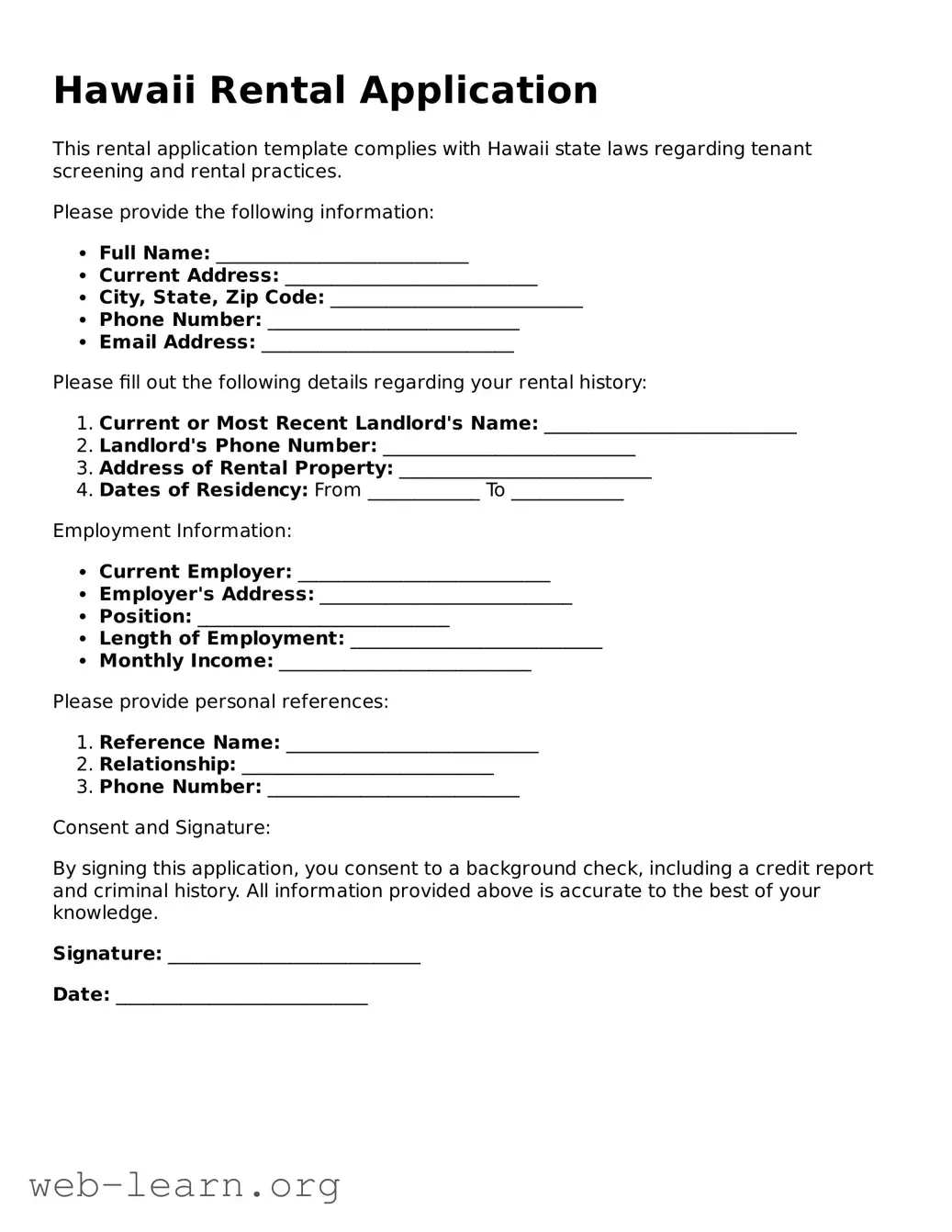Hawaii Rental Application
This rental application template complies with Hawaii state laws regarding tenant screening and rental practices.
Please provide the following information:
- Full Name: ___________________________
- Current Address: ___________________________
- City, State, Zip Code: ___________________________
- Phone Number: ___________________________
- Email Address: ___________________________
Please fill out the following details regarding your rental history:
- Current or Most Recent Landlord's Name: ___________________________
- Landlord's Phone Number: ___________________________
- Address of Rental Property: ___________________________
- Dates of Residency: From ____________ To ____________
Employment Information:
- Current Employer: ___________________________
- Employer's Address: ___________________________
- Position: ___________________________
- Length of Employment: ___________________________
- Monthly Income: ___________________________
Please provide personal references:
- Reference Name: ___________________________
- Relationship: ___________________________
- Phone Number: ___________________________
Consent and Signature:
By signing this application, you consent to a background check, including a credit report and criminal history. All information provided above is accurate to the best of your knowledge.
Signature: ___________________________
Date: ___________________________
